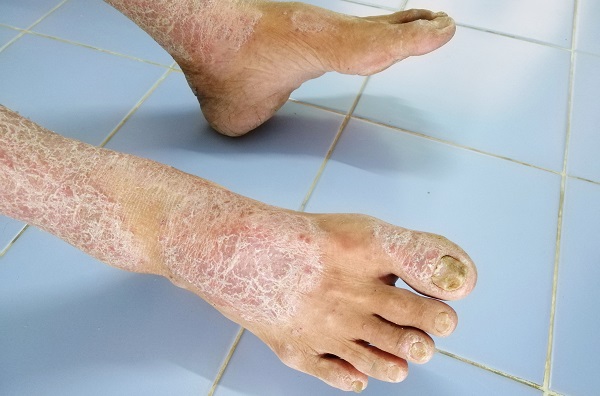
Guidance of Scleroderma patients during COVID
Systemic sclerosis is a rare chronic disease of unknown cause characterized by diffuse fibrosis and vascular abnormalities in the skin, joints, and internal organs. The term scleroderma, is used to describe the presence of thickened, hardened skin and can be the first diagnostic feature of systemic sclerosis (Ssc). Systemic sclerosis is classified based on the extent of skin involvement and accompanying patter of organ involvement. Organs commonly affected by systemic sclerosis include the heart and lungs. A recent statement from the World Scleroderma Foundation outlines advice for the management of patients with systemic sclerosis during the COVID-19 pandemic.
Severe Acute Respiratory Syndrome-Coronavirus-2 (SARS‐CoV‐2) infection, causing the disease designated as COVID-19 principally affects the lung at alveolar and interstitial levels. A main pulmonary presentation in patients with Ssc is interstitial lung disease (ILD). The World Scleroderma Foundation reports it is plausible patients treated with immunosuppressive drugs and/or with severe ILD may have higher risk of developing a progressive, rapidly evolving COVID-19. It is recommended, however, these patients remain on their immunosuppressant medications at this time to avoid Ssc relapses. On the other hand, if patients develop symptoms or if someone in their household develops COVID-19, immunosuppression should be put on hold.
Patients with underlying comorbidities such as diabetes, systemic hypertension, cardiovascular disease and lung disease have revealed a poorer outcome when suffering from COVID. Therefore, patients with these comorbidities should be closely followed if they have symptoms of COVID, even in the early phase of the disease . At this time, testing of all Ssc patients for COVID is not advised, however if they develop symptoms, it is advised these patients be tested with a nasopharyngeal swab.
Additional recommendations reveal there are no well-controlled, well-done trials available for the prophylactic use of chloroquine, HCQ or other adjunctive therapy in SSc patients. It is recommended patients wear masks, utilize careful hand washing, social distancing and cough hygiene. Patients with Ssc are encouraged to limit their visits to hospitals and clinics during this time and instead utilize telemedicine visits when needed.
Byline: Sarah B. W. Patton, MSHS, PA-C
Posted June 3, 2020
©2020
Matucci-Cerinic M, Bruni C, Allanore Y et al. Systemic sclerosis and the COVID-19 pandemic: World Scleroderma Foundation preliminary advice for patient management. Ann Rheum Dis. 2020. (Epub ahead of print).







